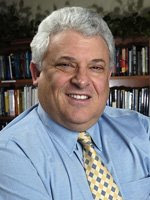 Bioethicist Art Caplan has weighed in against my Weekly Standard column. But he misses, or at least, fails to address, the primary point of the column. From his blog:
Bioethicist Art Caplan has weighed in against my Weekly Standard column. But he misses, or at least, fails to address, the primary point of the column. From his blog:
Wesley Smith has a new column out, in which he inappropriately uses the case in Belgium of Rom Houben to argue that somehow Terri Schiavo should not have been permitted to have her feeding tube removed. Smith argues that a case of locked-in syndrome is somehow analogous to the chance of recovery for someone in a PVS state post anoxia. I would like to have him find three neurologists who agree with that claim.
I certainly do think Terri should not have had her feeding tube removed, but not because of the Houben case. (I have a whole series of columns I wrote about the many reasons for this view, and why I think it was a profound injustice. They are available at my articles archive for those interested.) Rather, I am of this opinion because she was a living human being who died only because she was deprived of all nourishment, based primarily on what I consider to have been an invidious judgmentalism, pushed by a husband, who by the time he decided he wanted her to die, was living with another woman (now his wife), who he then called his fiance, with whom he was already having children. And that wasn’t the only apparent conflict of interest. Indeed, the guardian ad litem in the case recommended against dehydration due, in part, to a large financial conflict of interest, after which he was booted off the case based on a supposed bias against Michael Schiavo’s attorney. No other ad litem was ever appointed for her in the case in chief—and that was far from the only irregularity in the case.
Nor did I analogize Houben’s locked in state to Schiavo’s either PVS or minimally conscious state. They are not the same neurologically. But the point wasn’t neurological. Both people were fully equal to each other, Art, me, and indeed, each of us.
But now that Art brings it up, consider: Terri was dehydrated to death nearly 5 years ago. Five years ago, everyone except his family, thought Houben was PVS. Thus, at the time, he would have been considered just like Terri. Even if one thinks that PVS patients should be dehydrated—and I certainly don’t—about 40% of these patients aren’t really PVS. When we countenance dehydrating them, we are almost surely ending the lives of some people who are actually conscious, perhaps even a few like Houben, who are fully awake but locked in. This almost happened, for example, to Kate Adamson, who went without most fluids for days after an intestinal blockage, and called it more agonizing than when she had surgery with inadequate anesthesia because the doctors thought she was unconscious.
Art knows that conscious people are withdrawn from sustenance, but it doesn’t matter:
As a final point, it is important to point out that not only was Terri Schiavo in a PVS state with 100% certainty, but her husband could have directed her care to be stopped in the State of Florida even if she had been in a minimally conscious state or, for that matter, a 23 year locked-in state. No one is bound to accept medical care if it violates their religious or personal views about what they want from medical interventions. The fact that Wesley is arguing that Houben proves there was hope for Terri Schiavo neglects the core issue of the case—can a spouse direct care be stopped on the grounds that it’s provision violates the wishes and values of the patient.
Actually, I think in Florida (at least at that time), the patient had to be PVS to have food and fluids removed when there was no advanced directive. But even so, what Art states is correct generally. That is why I have argued food and fluids should be considered in a medical category all its own. Remove antibiotics, even kidney dialysis, and the results are not 100% certain. Remove food and water from anyone, and they will die in about two weeks.
But again, even that wasn’t the point of the column. I wrote the column in the way I did because I noticed so many in the media made a beeline to the Schiavo case as soon as the Houben news broke. There’s a reason for that. What we did to her still cuts deep.
